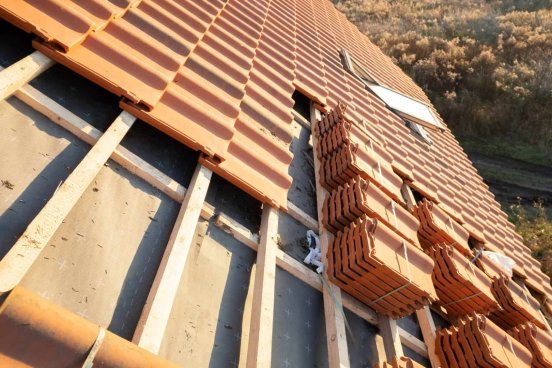Maintaining a roof in good condition is vital to protect your home from structural damage and energy loss. However, roof repairs and insulation upgrades can be costly, making it essential for many households to seek financial help. Fortunately, several UK roofing grants and funding programs are available to reduce this burden. This guide explains the main government-backed schemes, who qualifies for them, and how to apply successfully.

Understanding Roofing Grants in the UK
The UK government and local councils offer roofing grants mainly to improve home energy performance and reduce carbon emissions. The Energy Company Obligation (ECO4) scheme remains the most recognized national initiative. Through ECO4, large energy suppliers are required to fund energy-saving improvements — including roof insulation — for eligible households.
Local councils may also distribute Home Improvement Grants or Discretionary Repair Funds, particularly for elderly, disabled, or low-income homeowners whose properties need urgent attention. In some regions, housing renewal programs are offered to upgrade older homes, covering essential work such as roof repair or replacement.
Most of these grants are non-repayable, making them an excellent opportunity for those struggling with repair costs while contributing to environmental sustainability.
Eligibility Requirements
Eligibility for UK roofing grants depends on both financial and property-related factors. Typically, applicants must:
Receive means-tested benefits such as Universal Credit, Pension Credit, or Housing Benefit
Own and occupy the property as their primary residence
Live in a home with poor energy efficiency (low EPC rating)
Demonstrate financial hardship or vulnerability
Some local authorities prioritize older residents or families with young children. Before approval, an inspection is usually carried out to verify that the roof requires repair or insulation improvements.
Because funding is often limited, grants are awarded on a priority basis to those in greatest need or to homes that can achieve the most significant energy savings.
Application Process for Roofing Grants
To apply, homeowners should first contact their local council’s housing or environmental department. Council websites often list the active schemes, eligibility rules, and downloadable application forms.
For ECO4-related assistance, applications can be made through participating energy suppliers or registered installers, who manage the documentation process.
Applicants will typically need:
Proof of property ownership
Evidence of income or benefit entitlement
Photographic or survey evidence of roof damage
Once submitted, an assessor may visit the property to evaluate eligibility and recommend necessary work. Approval times vary between programs — from a few weeks to several months — so early application is advised.
What Roofing Upgrades Are Covered?
Government roofing schemes generally focus on energy-saving improvements, such as:
Loft or roof insulation
Installation of cool or reflective roofing materials
Repairs that prevent heat loss
Integration of solar or green roof systems
Work must be carried out by approved contractors following government safety and efficiency standards. Grants may cover full or partial costs depending on the scheme and applicant’s circumstances.
Alternative Funding Options
Homeowners not meeting grant criteria still have other financial options. Many high street banks and building societies offer home improvement loans with flexible repayment terms.
Equity release is another route for elderly homeowners who wish to access property value without monthly payments.
Charitable organizations, such as Turn2Us or Perennial, also provide emergency support for essential home repairs.
Final Thoughts
Roofing grants offer a practical path toward improving energy efficiency and ensuring home safety without overwhelming financial strain. Whether through ECO4 or local council schemes, taking advantage of these programs can lead to significant long-term savings while supporting a greener home environment.
